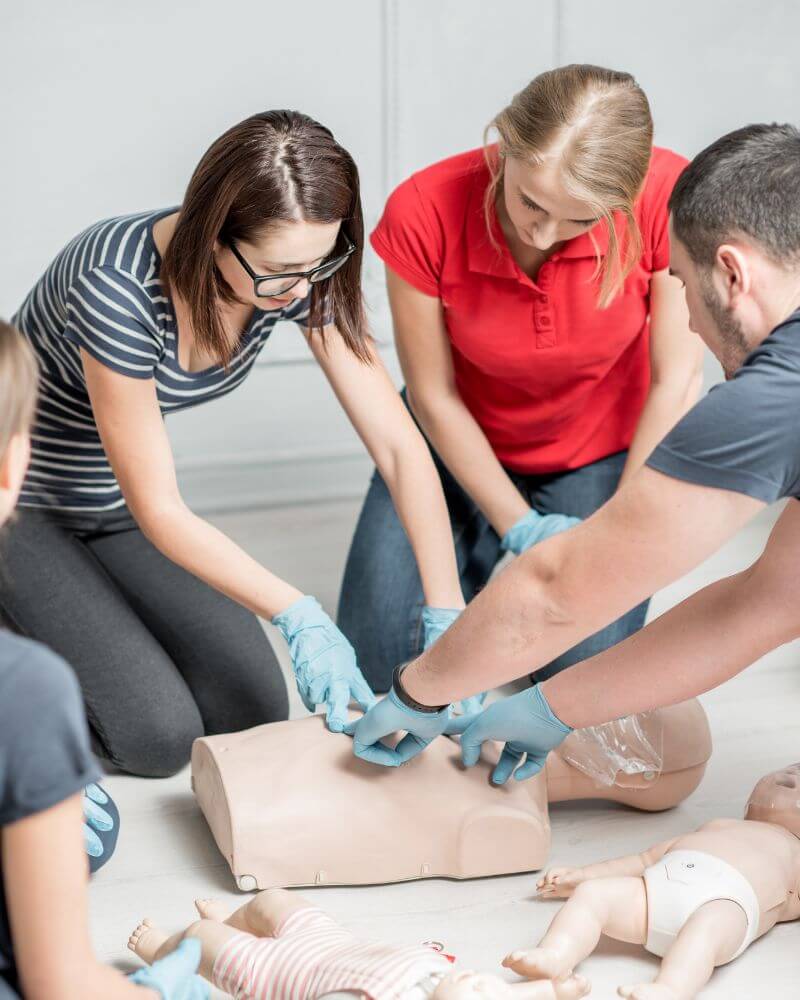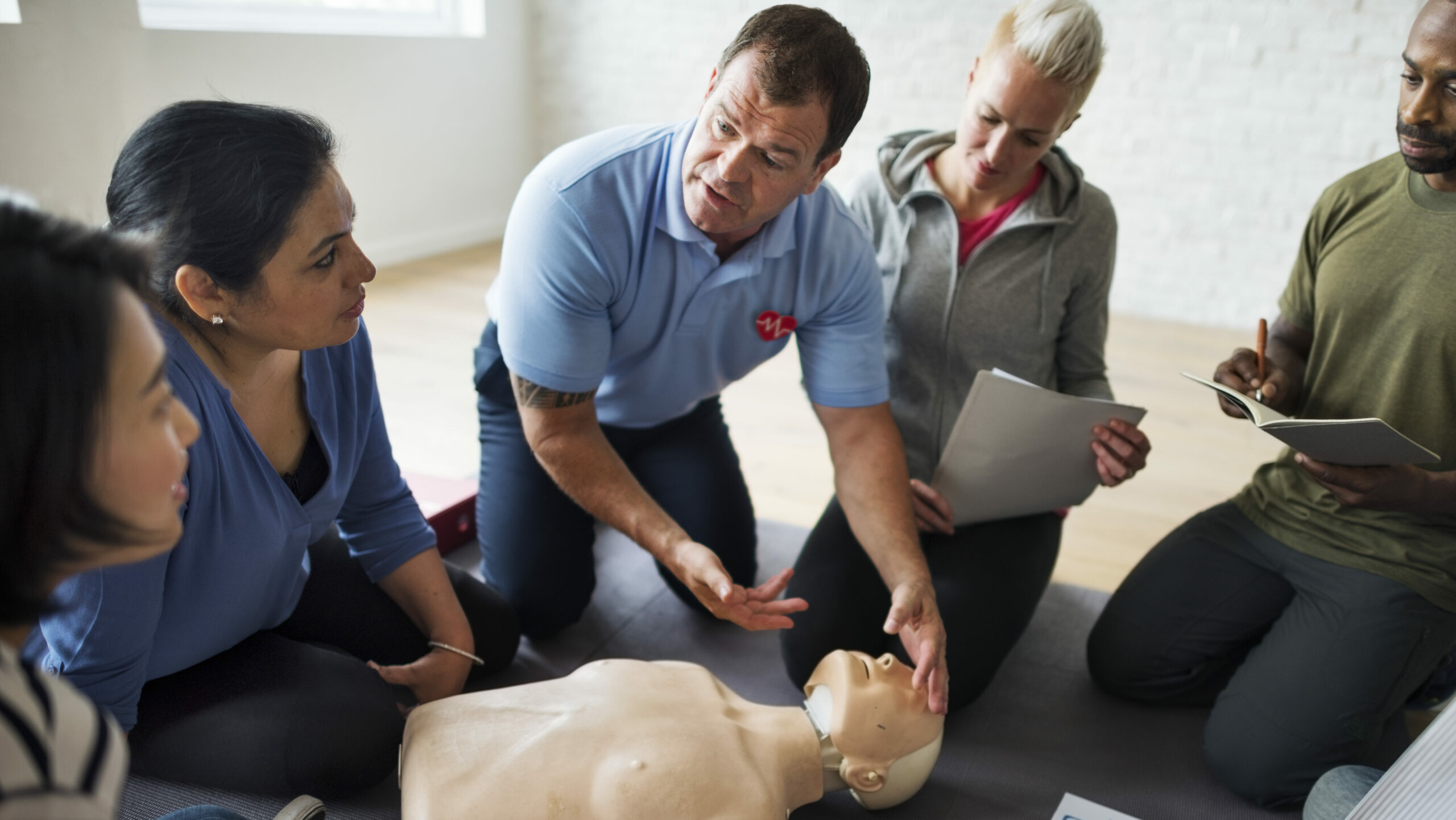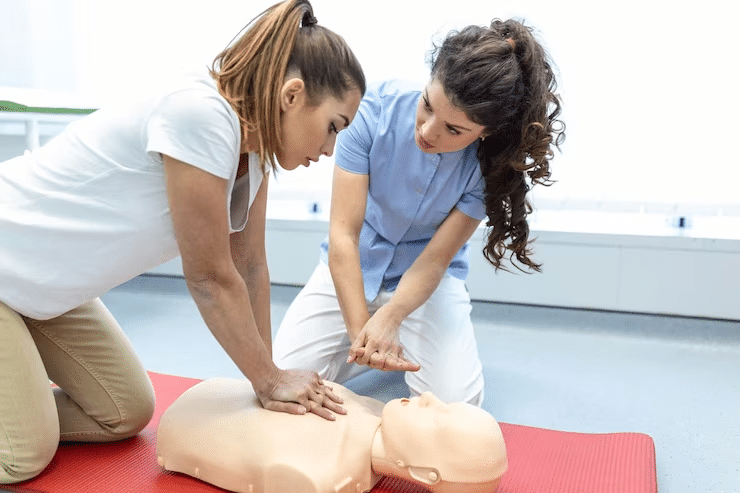Introduction
In our quickly transforming world, the significance of emergency treatment can not be downplayed. Whether in a corporate environment, university, or in the house, recognizing just how to respond effectively during a clinical emergency situation can conserve lives. However, with great duty comes the requirement for comprehending the regulations controling first aid practices. This article intends to provide a detailed overview of first aid guidelines that every carrier must know. We will certainly delve into numerous elements-- from necessary qualifications to the subtleties of mouth-to-mouth resuscitation training courses-- ensuring you leave geared up with knowledge and confidence.
Table of Contents
Understanding First Aid Regulations- 1.1 Value of Emergency Treatment Training 1.2 Legal Implications of First Aid
- 2.1 Sorts of First Aid Courses 2.2 Selecting the Right Program for You
- 3.1 Comprehending mouth-to-mouth resuscitation Techniques 3.2 Significance of CPR Certification
- 4.1 Advantages of Consolidated Training 4.2 Just how to Find an Integrated Course
- 5.1 That Needs a First Aid Certificate? 5.2 Credibility and Revival of Certifications
- 6.1 National Safety and security Council (NSC) 6.2 American Red Cross Standards
- 7.1 OSHA Standards for Workplace Safety 7.2 Employer Duties in Emergency Treatment Training
- 8.1 Fundamental Steps in Emergency Response 8.2 Role of a Very First Responder
- 9.1 Common False impressions concerning First Aid 9.2 Overcoming Barriers to Training
- 10.1 Virtual Discovering Opportunities 10.2 Advancements in Emergency Treatment Equipment
Understanding Emergency treatment Regulations
Importance of First Aid Training
First help training is not just a valuable ability; it's an important part of our societal material that equips people to act decisively throughout emergencies.
- Life-Saving Skills: Recognizing fundamental first aid methods can substantially increase survival prices in emergencies. Confidence Building: Individuals trained in emergency treatment commonly feel much more positive and prepared when confronted with medical situations.
Legal Implications of First Aid
Understanding the legal framework surrounding emergency treatment is critical for any person offering aid throughout emergencies.
- Good Samaritan Laws: The majority of states have regulations shielding those who provide aid willingly from lawful responsibility, as long as their actions are affordable and meant to help. Negligence Considerations: If a trained supplier acts carelessly or falls short to execute essential life-saving treatments, they might deal with lawful consequences.
First Help Gushes Overview
Types of First Aid Courses
There are different sorts of first aid programs offered, each tailored to satisfy different demands:
- Basic Life Assistance (BLS): Perfect for healthcare specialists requiring advanced skills. Standard First Aid: Covers important skills suitable for laypersons and non-medical personnel. Advanced Heart Life Support (ACLS): Targets healthcare providers collaborating with critically unwell patients.
Choosing the Right Course for You
When choosing a training course, consider your goals and circumstances:
- Are you looking for qualification for workplace compliance? Do you require skills particular to child care or elderly assistance?
Researching regional service providers can assist improve your selection based on place and services offered.
CPR and Its Significance
Understanding CPR Techniques
Cardiopulmonary resuscitation (CPR) is one of the most critical skills found out in any kind of emergency treatment course:
- Compression Technique: Effective breast compressions can maintain blood flowing to important organs until professional help arrives. Rescue Breaths: While less stressed currently due to brand-new guidelines, rescue breaths continue to be an essential part of conventional CPR training.
Importance of CPR Certification
Obtaining accreditation via acknowledged companies makes certain expertise in doing CPR:
- Many employers need current certification as part of their safety and security protocols. It improves general confidence when facing possible heart emergencies.
First Help and mouth-to-mouth resuscitation Program Integration
Benefits of Mixed Training
Taking an incorporated first aid and CPR training course offers various advantages:
- It improves training by covering both locations simultaneously. Participants acquire detailed knowledge appropriate across various scenarios.
How to Find an Integrated Course
Searching for integrated training programs calls for some tactical preparation:
- Look for neighborhood community centers or medical facilities using such courses. Online platforms might likewise provide online alternatives customized toward hectic professionals.
First Help Certification Requirements
Who Needs a First Aid Certificate?
Various industries require accreditation from personnel:

- Educational establishments usually require teachers and instructors to hold legitimate certificates. Healthcare setups require recurring training among staff members.
Validity and Revival of Certifications
Most accreditations have expiration days:
- Regularly renewing accreditations guarantees that providers continue to be up-to-date with present practices.
Regulatory Bodies Governing First Aid
National Safety Council (NSC)
The NSC plays a critical role in setting requirements for safety training throughout the USA:
- They offer sources, materials, and support for both teachers and students alike.
American Red Cross Standards
The American Red Cross provides considerable training programs straightened with nationwide requirements:
- Their curriculum consists of hands-on method, making sure participants create practical abilities alongside theoretical knowledge.
Workplace Laws on First Aid
OSHA Guidelines for Office Safety
The Occupational Safety and Health And Wellness Administration (OSHA) describes expectations pertaining to work environment safety measures:
|Need|Summary|| -------------|-------------|| Availability|Companies should make sure access to ample first-aid sources in any way times|| Educated Employee|Designated staff members should be trained in basic first aid|
Employer Duties in First Aid Training
Employers birth considerable responsibilities concerning employee security:
- Providing proper training sessions routinely assists lessen workplace injuries.
Emergency Response Protocols
Basic Steps in Emergency Response
An effective emergency feedback procedure can considerably boost outcomes throughout crises:
Assess the scenario safely. Call emergency solutions if needed. Provide necessary care till expert help arrives.Role of a First Responder
First -responders play a vital function within emergency situations by supplying prompt support while waiting for advanced medical treatment:
- Their prompt action commonly makes a significant distinction between life and death scenarios.
Challenges in Implementing Emergency treatment Training
Common Mistaken beliefs about First Aid
Misunderstandings surrounding emergency treatment can impede effective feedbacks throughout emergency situations:
Myth vs Reality Table
|Misconception|Truth|| ----------------------------------|------------------------------------------|| Only healthcare experts must carry out emergency treatment|Anybody can learn standard methods|| Making use of an AED is risky|AEDs are created for public usage|
Overcoming Barriers to Training
Several barriers exist that may hamper people from pursuing emergency treatment courses;
Key Barriers
- Time Restraints: Busy schedules make it challenging for many individuals to discover time for training sessions. Financial Limitations: Expense might hinder interested prospects from getting involved; however, several organizations offer subsidized programs or grants particularly targeted at supplying financial relief.
Future Trends in First Aid Training
Virtual Knowing Opportunities
With innovation advancing quickly, on the internet systems have obtained appeal among learners looking for flexible alternatives;

- Real-time simulations permit individuals to involve actively without requiring physical visibility at typical locations; This technique enhances access while suiting diverse learning styles!
Innovations in First-Aid Equipment
Emerging innovations are changing how we approach first-aid preparation;
Examples Include
- Smart Plasters-- complete sensing units keep track of recovery progress! Mobile Applications-- supplying advice based on individual input concerning signs!
FAQs Concerning Making Sense Of First-Aid Regulations
Q1: What is included in a typical first-aid course?
A common first-aid training course covers topics such as wound treatment, crack administration, shock treatment, choking treatments, along with CPR techniques customized in the direction of various age groups!
Q2: Just how usually do I require to renew my CPR certification?
Most companies advise renewing your certification every two years; staying knowledgeable makes certain reliable responses throughout emergencies!
Q3: Can I take an on-line first-aid course?
Definitely! Lots of reputable organizations supply on-line choices permitting students versatility while maintaining premium requirements via interactive content!

Q4: Exists any age requirement for taking these courses?
Typically speaking-- no! Children aged 10 or older can get involved under adult guidance; nonetheless-- it's suggested that grownups accompany them throughout lessons!
Q5: Exactly how do I select between different companies supplying comparable courses?
Examine reviews/testimonials from previous attendees along with examining accreditation condition prior to choosing; this will certainly make sure top quality education offered meets sector standards!
Conclusion
In recap-- making sense outta policies surrounding essential locations like 'first-aid' & & 'MOUTH-TO-MOUTH RESUSCITATION' is basic not only properly but directly also! As seen throughout this short article-- many factors add towards making certain correct responsiveness during medical emergency situations consisting of understanding called for certifications-- along with identifying challenges encountered whilst executing reliable programs within community/workplace setups alike! By investing time/resources into gaining proficiency by means of appropriate programs-- you'll be better located than in the past-- must destiny present its changability knocking at your door! Constantly bear in mind-- the capacity you have today can possibly save someone else's Click to find out more tomorrow!